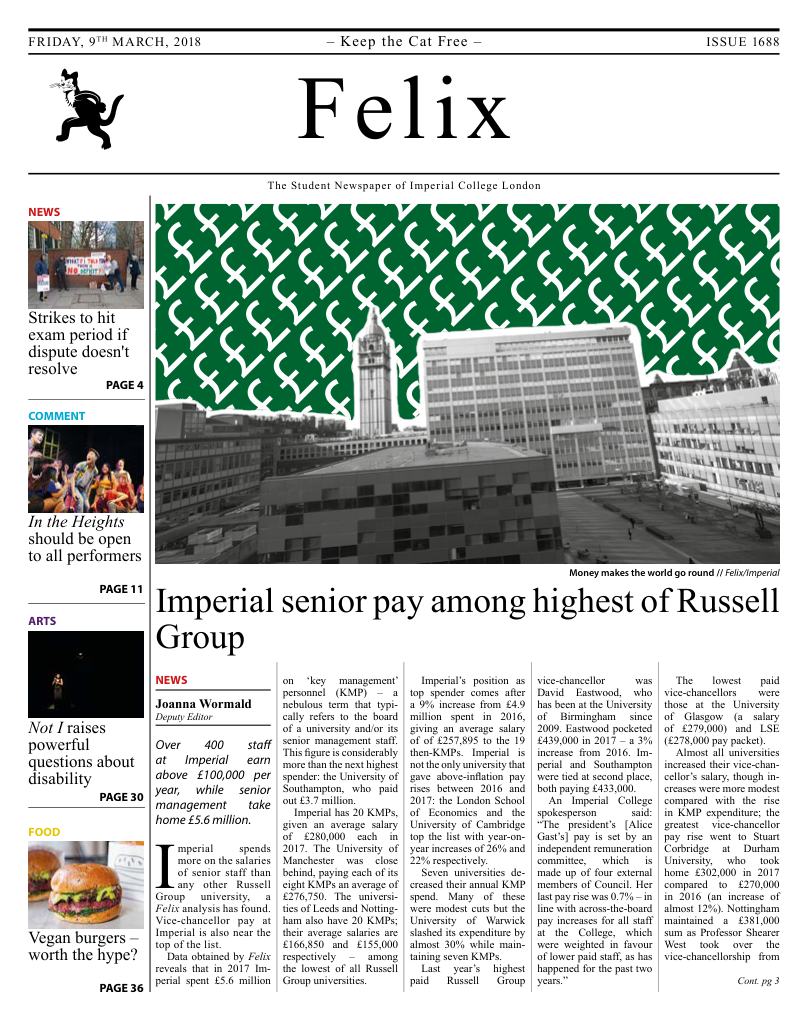Applications of blockchain technology
Why you should be wary of tech’s latest buzzword.

X but on the blockchain”, has become as much of a technological mantra as “Uber but for X” in these recent months. Apart from the sharp peaks and shallow troughs of the price of cryptocurrencies produced by a mutual belief of value, is there any practical use of blockchain technology?
Smart contracts are being used in blockchains to allow the execution of programs, and these programs run on all participating nodes of a blockchain network. Of course, implementations of these smart contracts differ as different cryptocurrencies have different purposes. Ethereum is well known for using an almost Turing complete language, only limited by an individual’s balance. This wildly free platform has allowed the development of several applications, ranging from virtual gambling casinos, crowdfunding platforms and digital rights management to something as superfluous as CryptoKitties. CryptoKitties allows you to spend some Ethereum in exchange for virtual cats, each of which is unique and able to be bred and traded. The popularity of this game in December of last year managed to slow down the entire Ethereum network as traffic from the game made up 15% of transactions at peak times.
“‘X but on the blockchain’ has become something of a technological mantra”
Should you be worried about virtual cats? CryptoKitties has shown us there are problems with the current networks in place; perhaps it wasn’t the killer application we wanted, but one we needed. Current ‘crypto-giants’ need to invest more in infrastructure to ensure people who are getting introduced to these new ecosystems have the means to do so. Apart from the Ethereum network, there are several other interesting projects in the world of blockchains. Storj uses blockchains to connect people who want to rent out drive space to people who are willing to lease it, using end-to-end encryption to facilitate this. They use a blockchain to keep a track of file permissions and which chunks of files are where, as they are never stored fully intact to increase security and privacy. The one limitation of this technology is the low-bandwidth connections being used for peer-to-peer connections, as maintaining and building infrastructure for a large scale distributed system like this would prove extremely difficult.
During the last Imperial Blockchain Forum hosted by the Imperial Centre of Сryptocurrency Research and Engineering, Sinan Belhawi from MedCoin presented his use of a blockchain in the medical industry.
“Ethereum is well-known for using an almost Turing complete language”
Firstly, the technology allows a distributed ledger to exist containing all your health information shared between doctors, hospitals and clinics ensuring no loss of information as you change health providers. This is a huge change from the system previously in place, where patients would have to remember things like all the different medicine they have been prescribed or present hand-written notes on scrunched up pieces of paper. MedCoins would then be able to be used as payment between patients and doctors, for services such as video call consultations where the consulting doctor is able to see all your medical history, or allow you to sell your health data to research companies in return for MedCoins.
Blockchains have several utilities; they allow us to operate without supervision from governments or authorities, they can be used to ensure a single correct account of events is kept between all parties, and can execute pre-defined actions under immutable terms. The place which we are at with blockchain technology is one that resembles the days of the early internet, with technological pioneers already working on ‘Web 3.0’. There are many challenges that we are to overcome before we can utilise this technology in a meaningful way. Currently there are a lot of projects out there that are using the current popularity trend in blockchain technology rather than attempting to make anything of value. At the moment you’re unlikely to be use any blockchains, however with the development of new applications they may become much more widespread.









